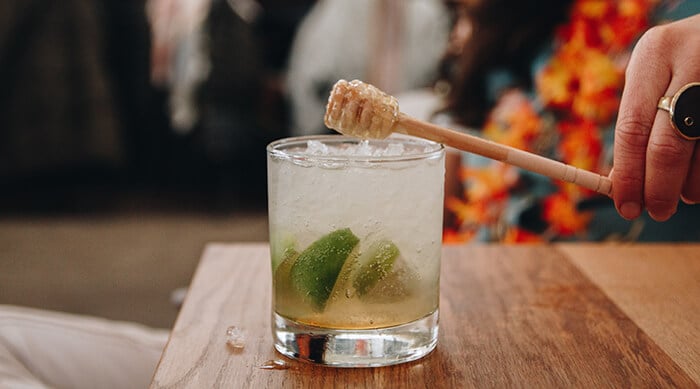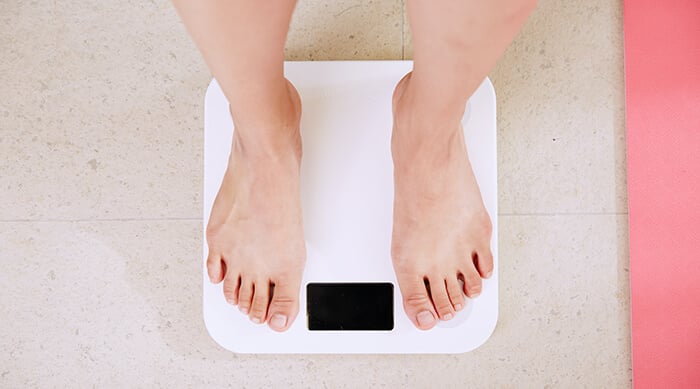We compiled medical information on the effect of alcohol on people with diabetes. People with diabetes drinking more than 1 to 2 drinks daily have an increased risk of ketoacidosis, hypertriglyceridemia, and hypoglycemia.
Any person with diabetes should closely monitor their blood sugar levels with alcohol use and adjust insulin accordingly. Always talk to your doctor to check for interactions with medicine and other health conditions.
There are plenty of drinking risks for diabetics, especially if you drink too much. Excessive drinking can cause serious health problems.
Table of Contents
What are the risks of drinking for diabetics?
Is it OK for diabetics to drink alcohol?
It’s not about the alcohol — it’s the sugar.
Alcohol Use and Diabetes Medication
What are the risks of drinking for diabetics?
The main 6 risks of drinking for diabetics:
- Induced insulin resistance and weight gain. Binge drinking has been shown to increase and induce insulin resistance, as well as unhealthy weight gain — even leading to obesity in some cases.
- Glucagon kits aren’t as accurate after drinking. Glucagon kits are commonly used in cases of type 1 diabetes, and even one drink will render them inaccurate.
- A raised risk of ketoacidosis. Binge-drinking alcohol can cause extremely high blood sugar, sometimes triggering the potentially lethal state of ketoacidosis.
- High blood pressure. One of the primary effects of alcohol is that it raises blood pressure. It also dampens the effects of blood pressure medications.
- Potential nerve damage. Since alcohol is a neurotoxin, drinking may make nervous system problems worse in people with diabetic neuropathy.
- Spiked triglycerides. Chronic overconsumption of alcohol can increase triglyceride fat levels in the blood, which can lead to a myriad of other health issues like cardiovascular disease.
Can you drink alcohol if you have type 2 diabetes? Yes, you can drink alcohol if you have type 2 diabetes, as long as your blood glucose levels are under control and you drink only 1 or 2 drinks.
If your blood sugar levels are uncontrolled or you struggle with binge drinking, it’s best to stay away from alcohol.
If you’re sober curious or have a complicated relationship with alcohol, you may want to abstain entirely.
Is it OK for diabetics to drink alcohol?
Diabetics should never drink alcohol while fasting or on an empty stomach. Opinions differ on moderate drinking, but all recommend monitoring blood sugar closely. Alcohol initially spikes blood sugar but shortly after it can quickly lower blood sugar to dangerous levels.
The ADA (American Diabetes Association) recommends no more than one drink a day for women or no more than two drinks for men to encourage weight loss and blood sugar irregularities.
Drinking red wine in moderation might offer individuals with type 2 diabetes:
- A lowered cardiometabolic risk. Drinking a glass of wine can slightly decrease cardiometabolic risk for type 2 diabetics (ie. the likelihood of a stroke, heart disease, or heart attack.)
- Better blood sugar management. Some experts believe that drinking 1-2 drinks a day can improve your body’s ability to regulate blood sugar. However, these findings conflict depending on the study.
Teetotaling (quitting drinking completely) also demands close monitoring if you’ve been drinking more than a drink or two each day. Since your insulin may go up and down at different times than you’re used to, you may have to adjust your injection times.
It’s not about the alcohol — it’s the sugar.
While drinking too much is certainly bad for your hydration levels, liver, and heart health, the major way that alcohol can interfere with diabetes care is through its sugar content.
High sugar intake can not only increase your risk of type 2 diabetes, but it can cause dangerous blood sugar fluctuations in people with the condition. Unfortunately, many alcoholic drinks and mixers contain high sugar levels and large amounts of carbs.
For example: One 12-oz serving of hard cider includes 10-20 grams of sugar. Sweet wines contain up to 12 grams of sugar in a single glass. The sugar in alcohol constitutes a risk factor for hypoglycemia and even hyperglycemia.
It can throw off insulin regulation, exacerbating diabetes symptoms.
Read Next: Why Wine Causes Bloating & How to Prevent It
Alcohol Use and Diabetes Medication
Unfortunately, drinking alcohol can interfere with diabetes management, as it interacts with diabetes medications. While many other effects of alcohol and diabetes are still being studied, this one is clear.
Pancreas-stimulating medicines such as sulfonylureas and meglitinides are designed to lower blood sugar. When alcohol compounds their effects, it may cause insulin shock. In addition, regular binge drinking while taking medications like metformin can cause dangerous side effects.
If you are using medication as part of your diabetes care, talk to your healthcare provider before having a sip.
7 Tips for Drinking Alcohol When You Have Diabetes
If you do choose to drink with diabetes, there are a few factors to keep in mind. Making healthier choices overall can lead to the benefits of drinking — without the potential side effects.
To drink more safely and healthily, type 2 diabetics and individuals with prediabetes should:
- Test your blood sugar. Staying informed on your blood sugar control can help you make wise decisions.
- Bring snacks. These can help even out any blood sugar changes.
- Stay hydrated. Try alternating between a glass of alcohol and a glass of water to keep your insulin in check.
- Eat before drinking. A full stomach can mitigate some of the negative effects of drinking and ward off symptoms of low blood sugar levels. Choose carbohydrates for your meal and never drink on an empty stomach. These choices can reduce the risk of hypoglycemia.
- Choose a lower-sugar drink. Distilled alcohols, dry wines, and champagne have a relatively low sugar content. Sweeter wines, beers, ciders, and mixed drinks usually contain more insulin-spiking ingredients. If you do have a cocktail, be sure to mix it with diet soda or club soda instead of sugary juice. Light beer is better than regular.
- Bring your medical ID. No, not just your driver’s license. Always keep your medical ID on you when drinking in case of an emergency.
- Keep your healthcare team updated. Your doctor can help guide your drinking habits. They will want to know of any lifestyle changes or diabetes diet choices you make around your alcohol consumption.
- Don’t use alcoholic drinks as a meal replacement. This is true for diabetics and non-diabetics alike. Alcohol doesn’t have the nutrition you need for your health.
- Stay within the guidelines for moderate drinking. One drink a day for women and two drinks a day for men may not seem like much, but it’s crucial for keeping blood glucose under control. A standard drink is defined as 12 fluid oz of beer, 5 ounces of wine, or 1½ oz of spirits.
While moderate drinking is possible for diabetics, the many health benefits of going alcohol-free are reason enough for many to swear off alcoholic beverages.
Here’s the bottom line.
While everyone should drink responsibly in moderation, sticking to these recommendations is particularly important for individuals with diabetes. Drinking more than the ADA guidelines, partaking on an empty stomach, or choosing sugary beverages can negatively impact diabetics.
There is a small amount of evidence that points to the cardiometabolic benefits of alcohol for individuals who have diabetes. However, it’s not significant enough to begin drinking if you don’t already consume it. Again, moderation is key here.
At Surely, we love the taste of wine but hate the negative health effects that can come with any type of diabetes. That’s why we created a non-alcoholic wine that is low in both calories and sugar. It’s not grape juice. We just removed the alcohol after it was made.
That doesn’t mean it sacrifices taste, though: Surely is made from high-quality grapes in Sonoma wine country.
Get all of the flavor without the negative effects by choosing a non-alcoholic sparkling rose or white today. Make the healthy swap for safer drinking today.
Sources
- Effects of Initiating Moderate Alcohol Intake on Cardiometabolic Risk in Adults With Type 2 Diabetes: A 2-Year Randomized, Controlled Trial.
- Impact of Alcohol on Glycemic Control and Insulin Action.
- Binge Drinking Induces Whole-Body Insulin Resistance by Impairing Hypothalamic Insulin Action.
- Alcoholic ketoacidosis.
- Consumption of alcohol and blood pressure: Results of the ELSA-Brasil study.
- Alcohol and plasma triglycerides.





![7 Hangover Cures That Work [Plus Deets on Hangover-Free Alcohol]](https://dropinblog.net/34240221/files/featured/hangover-cure-header.jpg)
